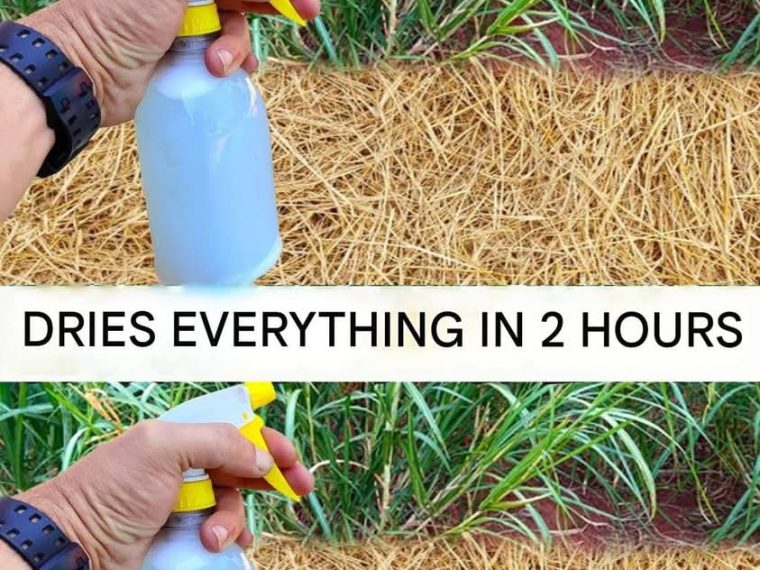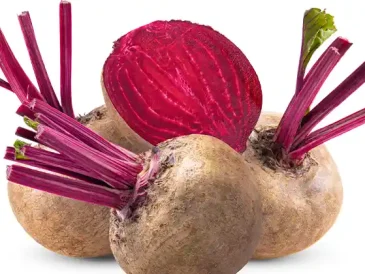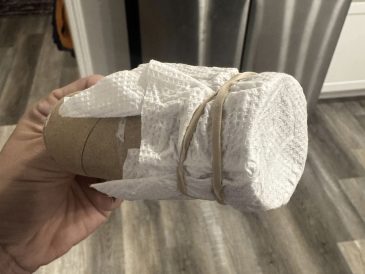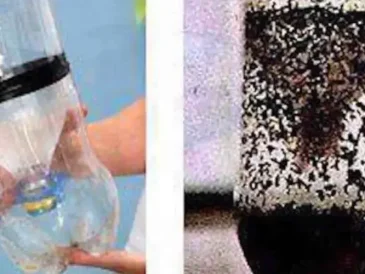Are you tired of battling weeds in your garden, driveway, or sidewalk cracks—without wanting to use harmful chemical herbicides like glyphosate? You’re not alone. Many home gardeners and eco-conscious homeowners are now turning to natural, homemade weed killers that are safe, effective, and fast-acting.
In this article, you’ll discover the best DIY herbicide recipe that contains no poison and has the power to dry and kill weeds within 2 hours.
Why Avoid Commercial Herbicides?
Popular weed killers like Roundup often contain glyphosate, a controversial chemical linked to environmental harm and potential health risks. Long-term exposure has been associated with:
- Soil degradation and microbial imbalance
- Harm to pollinators like bees
- Potential carcinogenic effects (according to IARC, WHO)
Thus, many people prefer homemade solutions that are non-toxic, biodegradable, and cost-effective.
✅ The Best Homemade Herbicide Recipe
This homemade herbicide uses three simple ingredients you likely already have at home. It’s natural, effective, and works best on sunny days.
🌿 Ingredients:
- 1 gallon (3.8 L) of white vinegar (5–10% acetic acid)
- 1/4 cup (60 ml) of dish soap (acts as a surfactant)
- 1/2 cup (120 g) of salt (table or rock salt)
🧪 Why This Works
1. White Vinegar (Acetic Acid)
Vinegar lowers the pH of the plant surface and draws moisture out of the leaves, leading to fast dehydration. Studies show vinegar can be effective against broadleaf weeds with visible results in 1–2 hours on sunny days.
👉 Reference: USDA Agricultural Research Service (ARS) has studied acetic acid as a non-selective herbicide.
2. Salt
Salt disrupts the osmotic balance in plant cells, making it hard for weeds to retain water. It also prevents regrowth when used in moderation.
👉 Note: Excess salt can damage soil health if overused, so apply with caution in garden beds.
3. Dish Soap
Soap breaks down the waxy surface of leaves, helping the vinegar and salt penetrate faster and more deeply.
🧪 Backed by Studies
Numerous studies support the use of vinegar and salt as natural herbicides:
- 🔬 University of Maryland Extension: Found 5% acetic acid vinegar could control small, young weeds, especially when reapplied.
- 🔬 Cornell University: Reported that household vinegar combined with adjuvants like soap showed significant weed suppression when applied during hot, sunny conditions.
- 🔬 Weed Science Society of America (WSSA): Notes that acetic acid herbicides work by destroying cell membranes, making them fast-acting but best suited for annual weeds.
🧪 How to Use It
- Mix all the ingredients in a garden sprayer or spray bottle.
- Shake well before each use.
- Spray directly onto dry weeds, making sure to fully saturate the leaves.
- Apply on a hot, sunny day for best results—heat accelerates dehydration.
- Do not apply on windy days to avoid drift to desirable plants.
Important: This is a non-selective herbicide. It will kill or damage any plant it touches, so apply with precision!
🌼 What Weeds Does It Work On?
- Dandelions
- Crabgrass
- Clover
- Chickweed
- Plantain
- Thistles (young)
Not ideal for deep-rooted perennials unless reapplied several times.
🧹 Where to Use It
- Sidewalk cracks
- Driveways
- Gravel paths
- Fence lines
- Around patios
Avoid spraying in garden beds unless carefully directed away from your vegetables or flowers.
✅ Advantages
- Visible results in as little as 2 hours
- Safe for kids and pets after it dries
- No synthetic chemicals or poisons
- Inexpensive and easy to make
❌ Limitations
- May require repeat applications for stubborn weeds
- Not suitable for large-scale agriculture
- Can alter soil salinity if overused
Final Thoughts
This homemade herbicide is one of the most effective natural weed-killing methods available today. It’s an excellent solution for those who want a quick fix without poisoning the environment.
Whether you’re a gardener, a pet owner, or simply eco-conscious, switching to this safe and fast-acting DIY spray is a decision both your plants and planet will appreciate.





